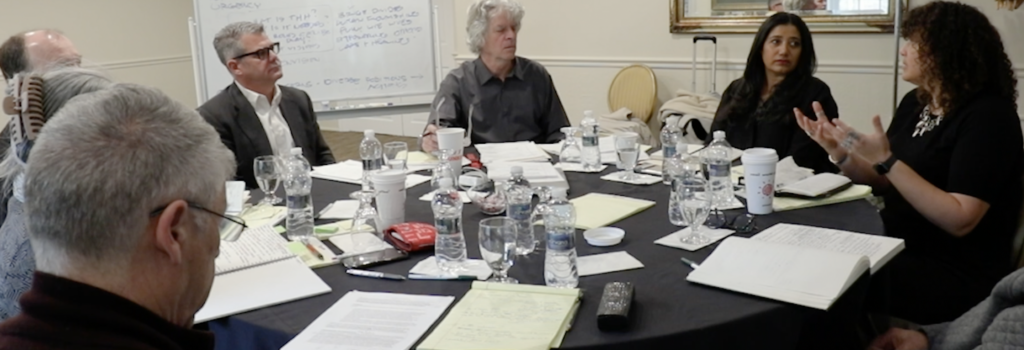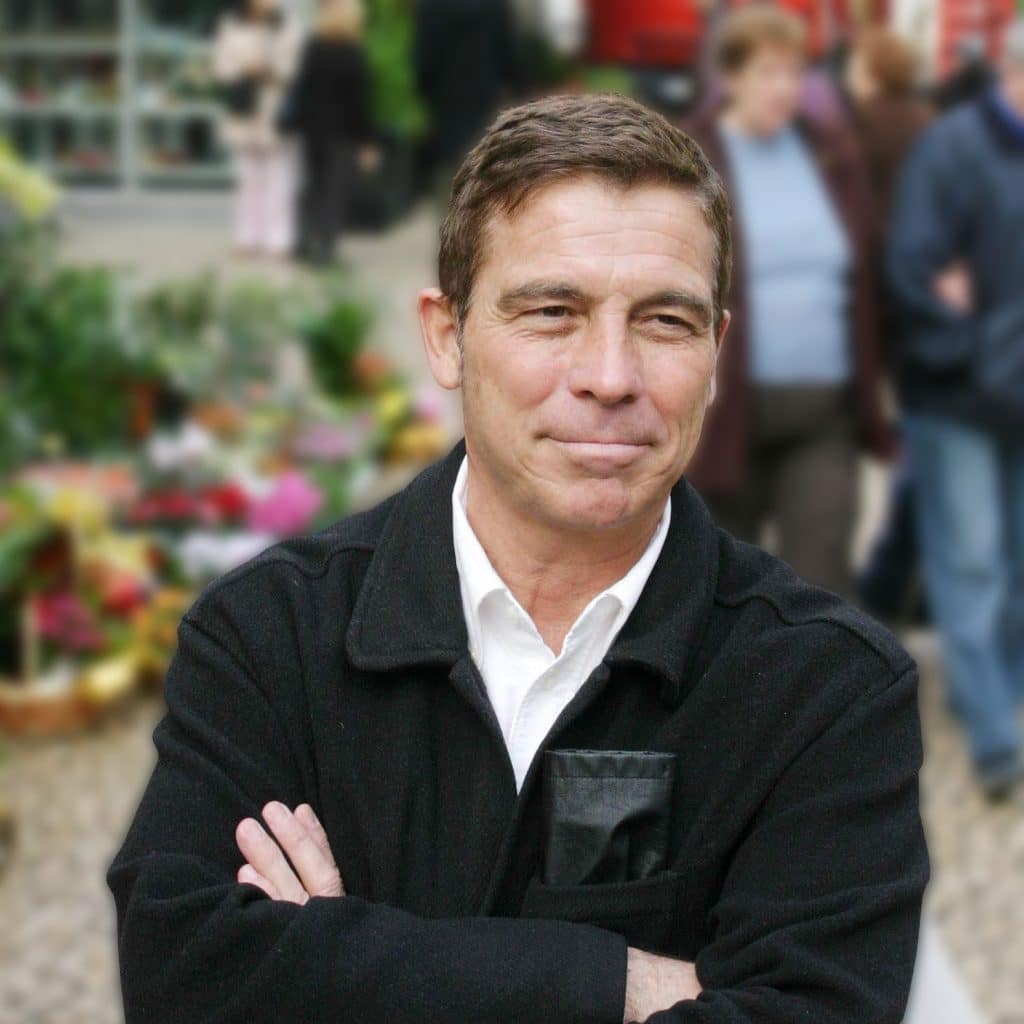Clive Knights
Portland State University, Portland, USA
knightsc@pdx.edu
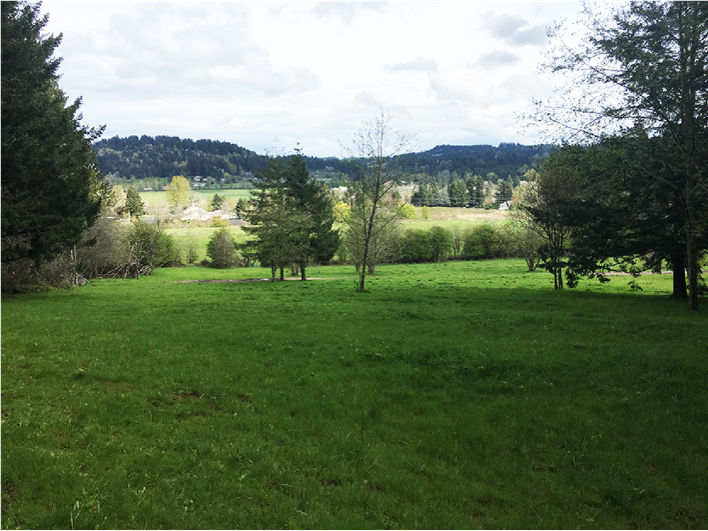
Site of the Treeline Stage, Pendarvis Farm, Happy Valley, Oregon
“It is of the nature of the festival that it should proffer time, arresting it and allowing it to tarry. That is what festive celebration means. The calculating way in which we normally manage and dispose of our time is, as it were, brought to a standstill….The essence of our temporal experience of [a festival] is in learning how to tarry in this way. And perhaps it is the only way that is granted to us finite beings to relate to what we call eternity.” [1]
For the past five years I have had the unmatched opportunity of tarrying for one lunar cycle each year, bridging July and August, upon the same tract of farmland in Oregon, the site of the Treeline Stage of the annual Pickathon Music Festival. With a faculty colleague and a diverse and changing group of architecture students, we have collectively designed, fabricated and dismantled five quite different stage settings for contemporary musical performance.
The Diversion Design/Build Studio, as we are called, was founded in 2014 ostensibly to seek out and borrow mass-produced industrial products from their typical work flow and divert them towards the festival as a building unit that could inspire new and unanticipated responses to the creation of the Treeline Stage. From wooden shipping pallets, to cardboard shipping tubes, to regular fir studs, our ambition has been ‘to use but not use-up’ materials, so we can send them back to their regular path of mundane utility following their contribution to the festival. In keeping with the overall festival philosophy of respect for the environment, we aim, each year, to leave no trace.
Le Corbusier said of his engagement with the site of Notre Dame Du Haut, “In June 1950, on the hill, I spent three hours getting to know the ground and the horizons….” [2][3] We have come to realize that our annual commitment to this music festival has afforded us the profound, humbling and quite unique privilege of getting to know the ‘ground’ of the Treeline project over these five years. In re-enacting the creative challenge of what to build here, we enrich our acquaintance with its horizons through recurring acts of refiguring new understandings of this place. To build once in the same location is quite an obligation to the continuity of place, to build, and build again, on the same tract of earth is as much a gift as it is an increasing responsibility to take place and to give it back, then to take it again, and return it.
“For the essence of the festival its historical connections are secondary. As a festival it is not an identity, in the manner of an historical event, but neither is it determined by its origin so that there was once the ‘real’ festival – as distinct from the way in which it came later to be celebrated. From the start it belonged to it that it should be regularly celebrated. Thus it is its own original essence always to be something different (even when celebrated in exactly the same way). An entity that exists only by always being something different is temporal in a more radical sense than everything that belongs to history. It has its being only in becoming and in return.” [4]
Our ‘site visit’ in April each year to initiate the annual project is like visiting an old friend and rekindling the conversation right where we left off. We notice the marks of endurance, demise and transition in the persistence of familiar details, from the steadfast profile of the eastern hills, to irreplaceable loss where distant landowners have demolished once visible structures, to the tenacity of the meadow grass and woodland in their cyclic patterns of seeding and propagation. The vastness of the region resonates through our bodies and triggers our imaginations to ask questions all over again of this renewed but familiar setting, to augment prior understanding with fresh perspectives, to recognize and be carried by the wave of continuity transcending each of our mortal limits, thus exposed as a mere sub-set of a grander scheme that is always fully present but never fully revealed.
In placing and replacing the Treeline Stage as the setting in which festival-goers nurture enhanced intimacy with performing musicians, we have striven to connect this dynamic, transitory, human-to-human experience to the landscape that lends it definition, particularity, and a concrete sense of communion with a ‘given’ world. As intermediary, literally and metaphorically, the stage structure frames a multiplicity of perceptions, registers the transience of sunlight, calibrates a sense of scale, and encourages festival-goers to pay attention to the subtle contributions of place in the possibility of their relationship to each other.
Using the example of five unique Treeline Stage designs, this paper argues for the continued relevance of festival experience in the generation of a domain of human meaning otherwise unattainable to a predominantly secular culture. It suggests that an ethics of making, imagination, and material responsibility in the veneration of place lies at the foundation of the possibility of community. As Gadamer reminds us, “If there is one thing that pertains to all festival experiences, then it is surely the fact that they allow no separation between one person and another.” [5]
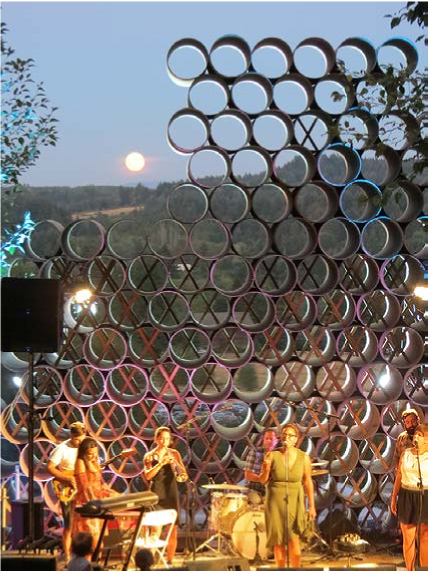
Blue moon on July 31st, Treeline Stage 2015
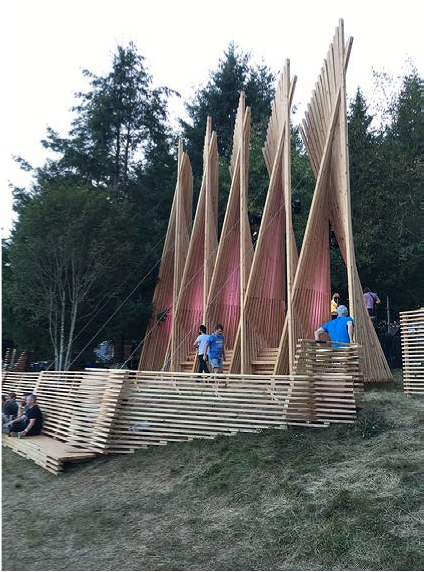
Contrapposto, Treeline Stage 2016
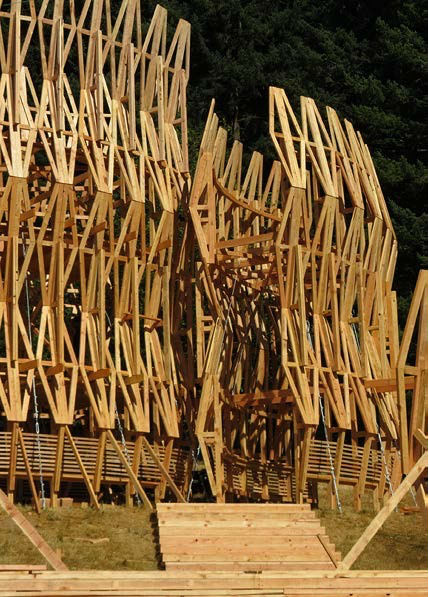
Sanctuary towers, Treeline Stage 2017
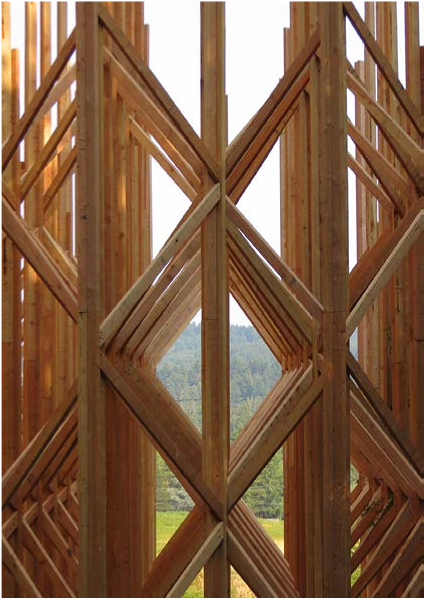
Framing horizons, Treeline Stage 2018
[1] Hans-Georg Gadamer, “The relevance of the beautiful” in The Relevance of the Beautiful and Other Essays (Cambridge: CUP 1986) pp42-45
[2] Le Corbusier, Texts and Sketches for Ronchamp (Ronchamp: Association Oeuvre de Notre-Dame du Haut,
[3] ) p9
[4] Hans-Georg Gadamer, Truth and Method (London: Sheed & Ward, 1975) p110
[5] Gadamer, “The Relevance of the Beautiful,’ p39


